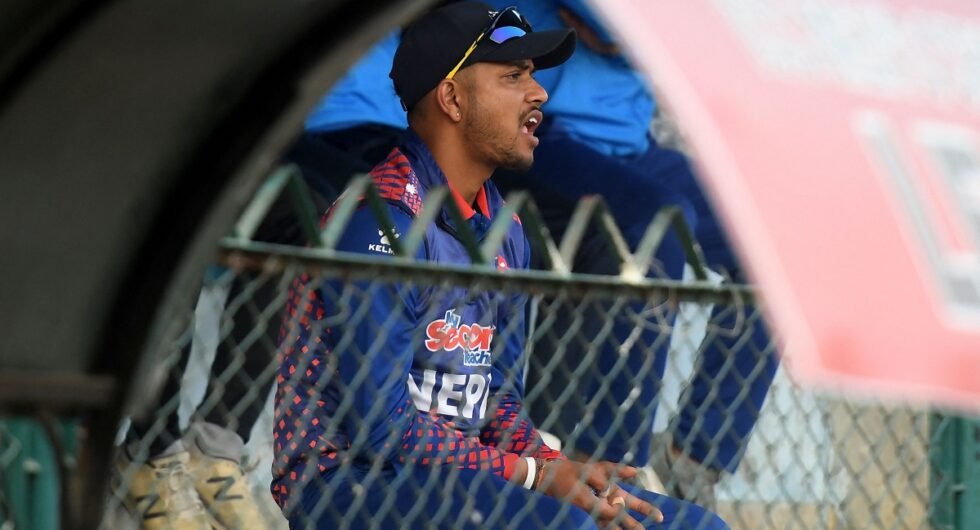
Sandeep Lamichane, the former Nepali national team captain
By Neha Rayamajhi 13 September 2023
Trigger warning: mention of rape
2023 has been a good year for the Nepali Cricket Team. From its performance at the ICC Men’s Cricket World Cup League to its debut at the Asia Cup, this has been a year many cricket fans of this small country had been waiting for. But what could have been a testament to the beloved team’s successful journey instead became an example of the nation’s moral failure.
Sandeep Lamichane, the former national team captain, was accused of raping a seventeen-year-old in Kathmandu last August. He was suspended from the team and arrested but freed on bail in January. In the same month, the Cricket Association of Nepal (CAN) quickly revoked his suspension, enabling him to play for Nepal. Lamichane was also given the freedom to travel abroad for various matches, an unusual if not unprecedented decision made by the law in favor of somebody who has yet to be proven innocent. Moreover, the legal trial was postponed, allowing Lamichane to join his team in Pakistan for the Asia Cup.
The day Lamichane returned to the pitch after his suspension, the crowd cheered for him. He waved back and walked confidently like a hero. Lists after lists of political leaders, athletes, and actors celebrated him like one. Those who did not glorify Lamichane directly applauded the team. The support grew larger as Nepal advanced to the Asia Cup for the first time. There were newspaper articles, television interviews, and social media posts honoring the team. The rape case did not matter. The minor involved did not matter. Countless survivors and victims of gender-based violence did not matter. Nationalism, patriarchy, and the thrill of sportsmanship did.
Criticisms against Lamichane and CAN are being pushed back because the accusation has not yet been proven. Those defending the cricketer find it irresponsible and unfair to “punish” him for a crime that the court has not yet established. However, “alleged” does not mean innocent. It means that there is still half the chance that he is guilty.
Institutions and individuals’ willingness to be this militant about protecting someone who, according to their logic, still holds the probability of having raped a minor is a dangerous demonstration of rape culture.
It is because of this culture that people are quick and confident to shift the blame to survivors. While there is an abundance of grace for an alleged rapist among Nepali cricket fans, there is a lack of just that for the teenage survivor. Questions about her decision to go to the hotel with Lamichane, her intentions behind the accusation, and even her age continue to surface on the internet whenever the team is in the limelight. And at the core of all these questions is an implication that this was a consensual affair.
Like many other countries, Nepal’s criminal code deems sexual intercourse with anyone younger than eighteen rape. Regardless of personal opinions on semantics and details of decisions that may or may not have been taken by the survivor that night, the country’s legal system categorizes it as a crime punishable by ten to twelve years in prison.
As supported by many psychological studies, people in the age category under eighteen are not fully able to give consent to adults. Also, Lamichane’s gender and celebrity status adds to the power dynamic that makes consent difficult in this case.
Every time I see the Nepali cricket team being applauded, I feel betrayed. I think of the survivor and many others, the majority of whom do not report sexual violence due to fear of not being believed but blamed and punished, fears that our individual and collective memory validate, fears that this country is validating right now in real-time.
The consistent and public gaslighting that victims of celebrities have to live with is violence on its own. The trauma of holding your hurt while the whole country honors the perpetrator is unimaginably painful. The social media posts, the romanticized newspaper headlines, each public glorification of these celebrities are an attack on their victims. It is a reminder that their skills, whether on the field or in a film shoot, outweigh the value of women’s and children’s safety.
In a more just society, CAN would not have reinstated Lamichnae in the team until the end of the trial, let alone fly him abroad to represent the country. The media, famous figures, local leaders, and cricket fans would not be cheering for the team as a protest against CAN’s decision. The concern for this young woman would have been far more profound than any pride over wickets and wins. In a more just society, I would not have been writing any of this.
2023 has been a good year for the Nepali cricket team and at the expense of women, children, and survivors of sexual violence everywhere.
